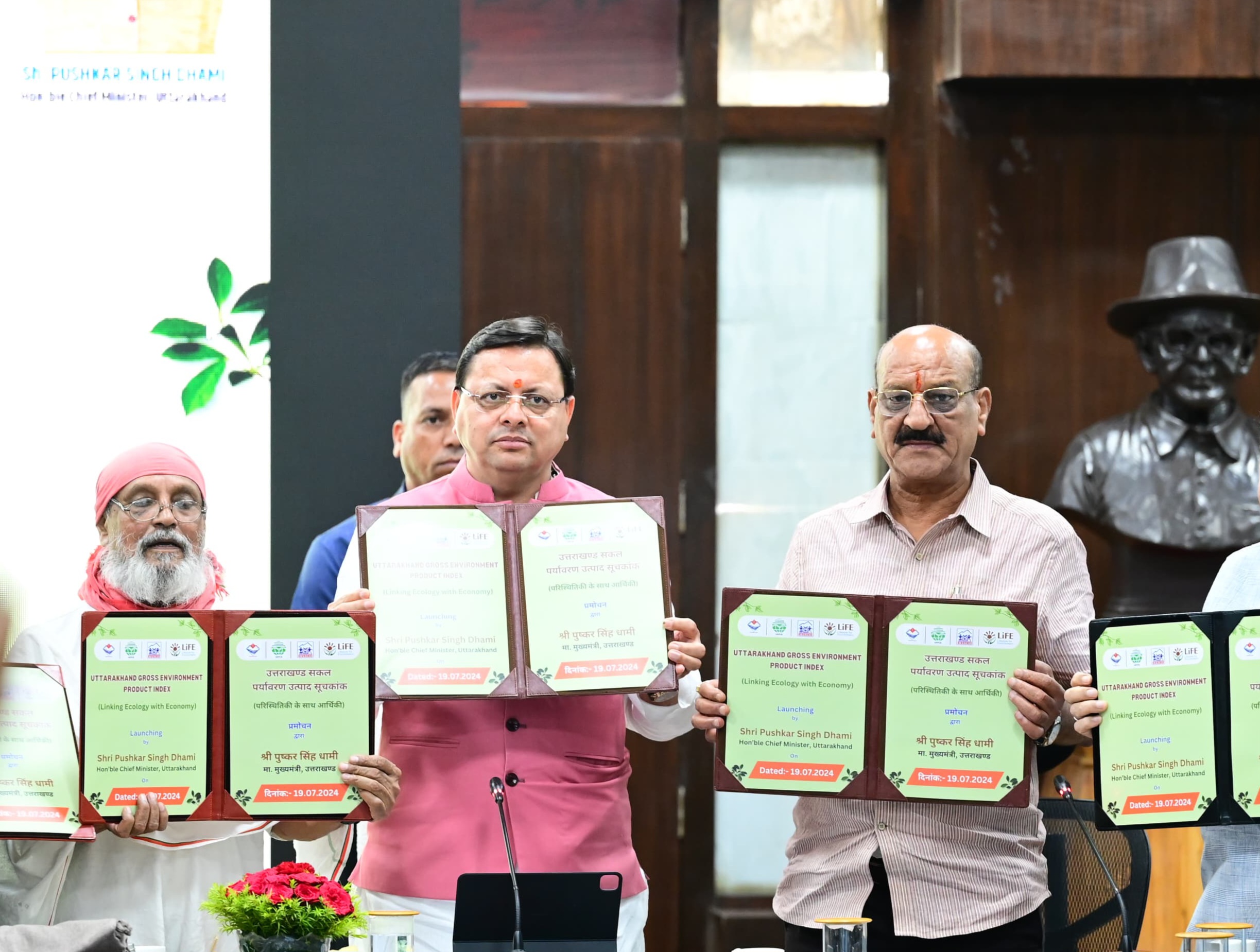Uttarakhand’s GEP is 0.9 percent based on data of 20021-22: Dr Joshi
PrashantNews
Chief Minister Pushkar Singh Dhami on Friday formally launched Gross Environmental Product (GEP) index to measure the health of the natural environment in Uttarakhand.
Renowned social activist Dr Anil P Joshi had floated the idea of the GEP in the hill state more than a decade ago to check the health of the environment broadly comprising forests, air, soil and water.
At a function held at the state secretariat in the presence of Dr Joshi, Dhami formally launched the GEP which has already been notified by the state government in 2021. Speaking on the occasion, Dhami said with the launching of GEP, Uttarakhand has become not only the first state in India but also in the world.
Based on the government’s data of 2021-22, Dr Joshi also made a presentation before the Chief Minister where the GEP of the state was estimated to be 0.9 percent which was far less than the standard parameter of 3-5 percent.
Dr Joshi later said since natural resources especially water, forest, soil and air are depleting due to poor management and over exploitation, it becomes imperative that the country must have an appropriate mechanism for the periodic review of the health of the state’s ecology. “The status of our natural resources must be reviewed periodically as well as their growth so that we must understand what we lost and what we gain every year,” he said.
Giving several examples where the trees were felled in the name of the development, Dr Joshi pointed out that only a prudent approach will bring a balance between the nature and human activities. “This will only be possible when we also measure through some indices growth of soil, water, forest, air etc. Annual gross environmental product of natural resources can only serve such purpose,” said Joshi, the founder of HESCO, a Dehra Dun-based NGO.
Stating that GDP is a monetary measure which simply reflects the growth of final products in various sectors related to the economy, Dr Joshi said “We deliberately forget that such growth can only offer luxury to a handful of people and do not serve the purpose of fundamental needs of everybody.”

